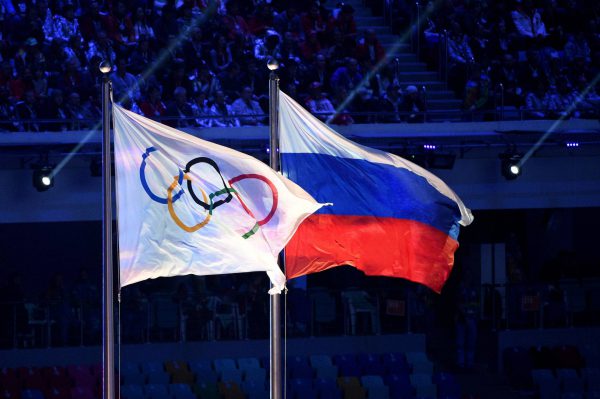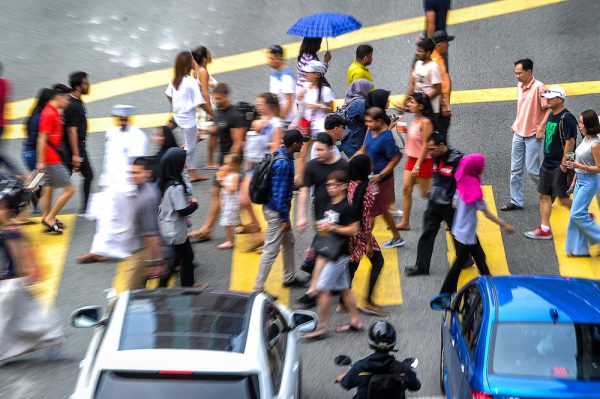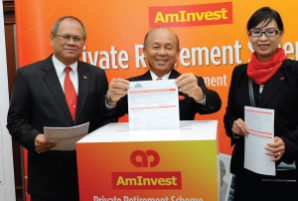Malaysians spend 70% of monthly income on goods, housing and transport, says minister
Almost 70% of Malaysians’ monthly income are spent on goods, housing and transport, Domestic Trade and Consumer Affairs Minister Datuk Seri Saifuddin Nasution Ismail said. Based on a World Bank Group report, the cost of living shouldered by Malaysians was mainly due to the three said components, he said. The report states that the lower the people’s income, the more they spend on food, while those with higher income spend more on leisure such as travel or to visit recreational clubs and so on. “So from here we can see that when there is a cost price increase of goods and the low income group are the most affected,” he said. Moving forward, the government will continue to improve public transportation services, particularly last-mile connectivity as well as creating more affordable housing and also introducing creative, innovative schemes to boost and reduce the burden of home ownership, he said. (Malay Mail)
Malaysia ranked 61st on UN’s Human Development Index for 2018
Malaysia is scoring high in its Human Development Index (HDI) for 2018, with a score of 0.804 compared with 0.802 last year, putting the country in the Very High Human Development category, finishing at 61st place out of 189 countries. Malaysia’s score increased primarily because of improved life expectancy average, at 76.0 versus 75.8 in 2017 and Gross National Income Per Capita at Purchasing Power Parity (PPP) of US$27,227 compared with PPP of US$26,555 in 2017. Only two other Asean countries are categorised in the same Human Development category as Malaysia, namely Singapore and Brunei. The top five countries in the global HDI rankings are Norway, Switzerland, Ireland, Germany, and Hong Kong. The Asia-Pacific region leads the world in access to broadband Internet and is gaining on more developed regions in terms of life expectancy, education, and access to healthcare. (Malay Mail)
Pahang establishes Cameron Highlands Development Corporation
The Cameron Highlands Development Corporation was established by the Pahang state government to ensure sustainable development in the highlands. Mentri Besar Datuk Seri Wan Rosdy Wan Ismail said the establishment of PKCH would also play a role in promoting Cameron Highlands as a centre for trade, investment and logistics as well as assisting in the socio-economic, infrastructure, residential and agricultural development planning. Chaired by the mentri besar with the state secretary as its deputy chairman, PKCH members comprised five representatives of state government, three from the federal government and two experts. (Malay Mail)
Axis REIT hungry for more assets
Axis Real Estate Investment Trust (REIT) is in talks with several parties on buying more assets, a clear indication that it does not intend to slow down in its acquisition spree. This is despite the trust having completed developments and acquisitions worth over RM600 million over the past two years, bringing its total assets managed to more than RM3 billion. “We are always combing through the market for potential acquisitions, particularly warehouses and manufacturing facilities in our core areas,” said Axis REIT Managers Bhd CEO-cum-executive director Leong Kit May. Leong stressed that there is still very strong demand for industrial properties in Malaysia, especially warehouses and manufacturing facilities. Axis REIT had announced seven acquisitions this year – all of them industrial properties – valued at a total of RM288.3 million, which are expected to be completed by 1H2020. (The Edge)
Russia banned for four years to include 2020 Olympics and 2022 World Cup
Russia has been handed a four-year ban from all major sporting events by the World Anti-Doping Agency (Wada). It means the Russia flag and anthem will not be allowed at events such as the Tokyo 2020 Olympics and Paralympics and football’s 2022 World Cup in Qatar. But athletes who can prove they are untainted by the doping scandal will be able to compete under a neutral flag. Russian president Vladimir Putin said the country had grounds to appeal against the decision. Wada’s executive committee made the unanimous decision to impose the ban on Russia after Russia’s Anti Doping Agency (Rusada) was declared non-compliant for manipulating laboratory data handed over to investigators in January 2019. Russia has been banned from competing as a nation in athletics since 2015. (BBC)

(Photo by Andrej ISAKOVIC / AFP)





